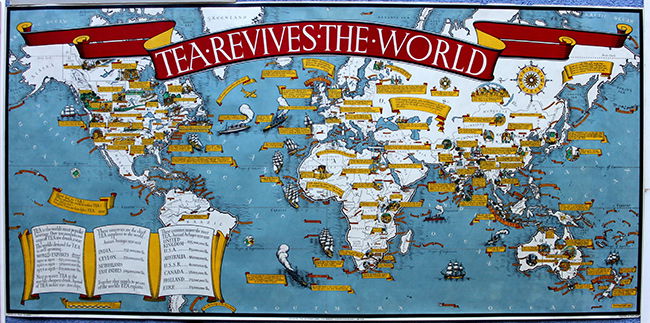
The Friday Digest brings you the best of the week's history news gathered from the experts:
* As book fans will already be aware, the Cheltenham Literature festival started last Friday and is ongoing with many more exciting events planned for this weekend. I would love to hear Mary Beard's talk; you can't go wrong with learning how to read a Latin love poem!
* Cheltenham is one of the most popular literature festivals in the country, attracting an extremely diverse crowd, but The Bookseller asks what can literature festivals do for the community?

* The History Press author Lucy Adlington was at the festival on Monday, giving her first talk about Great War Fashion and the importance of clothing when examining history. You can read her write up of the day here.

* The Telegraph explains just how the First World War continues to shape Britain today.
* Jeremy Paxman is always a bit of a controversial figure. This week is no exception as he directs his ire towards the commemoration of the First World War, criticising both David Cameron's plans for the centenary commemorations to resemble the diamond jubilee celebration and the 'stupid' practice of using Blackadder to teach students about the war.
Do you agree with his comments?

* Andrei Pandele began photographing his home country, Romania, in the 1970s. His stunning photos capture a period of momentous change under communist dictator Nicolae Ceausescu.

* As Medieval Lives: Birth, Marriage, Death aired on BBC Four this week, History Extra asks 'Did people in the Middle Ages really cope better with death than we do?'

* The distinctive alphabet commissioned by the Imperial War Graves Commission for the military headstones of the First World War is etched onto our national conscience, but MacDonald ‘Max’ Gill, the man who designed it, is largely forgotten. This is all set to change with a new exhibition named 'Out of the Shadows: MacDonald Gill' which looks absolutely brilliant.

* Seventy years ago this month, an extraordinary mass escape happened from Nazi-occupied Denmark with almost the entire Jewish population leaving the country.

* As English Heritage announce that it is building a £27m visitor centre at Stonehenge, Alison Feeney Hart asks if cafes and gift shops are as important to visitors as the attraction itself.

* This week, Melvyn Bragg and his guests were discussing the Roman physician and medical theorist Galen on BBC Radio 4. Despite being one of the key figures in the history of medicine, not enough people know Galen's name and the extent of his influence.

* A seventeenth-century guide for freshers at Cambridge University has been made public. Amongst other tips it suggests students dress 'soberly' and advises them to make 'honest' rather than 'scurrilous' friends.
How much of this advice is relevant to students today?

* Classic television fans are rejoicing this week as nine missing episodes of the 1960s Doctor Who have been found at a TV station in Nigeria, including most of the classic story 'The Web of Fear'.

* Was there a real Sweeney Todd?

* Why 'the age of Amazon' still needs editors like Max Perkins.
* Philip Jones at The Bookseller urges publishers to find their 'heart and soul' and emphasises the importance of rediscovering 'the sizzle'.

* Publishers from all around the world descended on Frankfurt this week, but is the Frankfurt Book Fair still relevant?
Which history and publishing stories have you enjoyed reading this week?